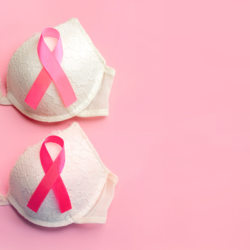The hormone-dependent cancers are a major public health problem. These are the most frequent cancers in France in women ( breast cancer ) as in men ( prostate cancer ) with approximately 42,000 new cases each year. As a result of advances in therapy and screening, the death rate for breast cancer has fallen by around 40%. But the total number of deaths is only decreasing very little due to the increase in the number of cases. The breast cancer remains in France the leading cause of cancer death in women.
What is hormone dependent cancer?
Cancer is hormone-dependent or hormone-sensitive when hormones play a role in the proliferation of cancer cells . Hormone-dependent tumors especially form in tissues whose functioning is normally regulated by hormones.
In the majority of cases, sex hormones have a carcinogenic action if the tumor cells have an abnormal amount of specific receptors on their surface. These cells are then said to have developed hypersensitivity to hormones. When the hormone attaches to these types of cells, it stimulates their multiplication, which promotes the development of a tumor. The hormone, on the other hand, has no effect on cancer cells lacking the specific receptor.
How does hormone-dependent cancer develop?
Prolonged exposure to estrogen is a factor that promotes the development of certain cancers, especially breast cancers. Stimulation of cell growth by the chronic activation of estrogen receptors is the mechanism most often mentioned. In recent years, certain genotoxic metabolites of estradiol , in particular catechols and their quinolic derivatives, have been suspected as agents of tumorigenesis. However, these different metabolites do not have the same toxicity and any exogenous factor, such as certain pollutants, or endogenous such as estrogen themselves, capable of modifying the activity of the enzymes producing them, could play a role in the pathogenesis of these substances. hormone-dependent cancers.
Hormonal treatments (contraception and hormonal treatments for menopause have a promoting effect on pre-existing lesions: the increased risk of low amplitude gradually disappears when the treatment is stopped).
Hormonal contraception slightly increases the risk during use, but the number of women concerned is very low up to> 40 years (age when estrogen-progestogen contraception is no longer prescribed).
Pregnancy is protective so early but increases the risk so late.
A little history
Cancer is a disease described since ancient times, the name of which was given by the Greek physician, Hippocrates . By observing the appearance of certain tumors which present extensions reminiscent of the legs of a crab, he named them for the first time by the Greek names of ” karkinos ” and ” karkinoma ” (cancer and carcinoma).
Hormon-like essential oils and hormone-dependent cancers
Certain essential oils, such as officinal sage ( Salvia officinalis ) have a hormon-like action , ie they will mimic the action of some of our hormones. These essential oils should therefore be handled with the greatest care in the context of hormone-dependent cancers.
Essential oils rich in sesquiterpenes, sesquiterpenols and ethers have a molecular structure close to natural hormones produced by the human body such as estrogen, progesterone, cortisone, etc. They thus mimic the activity of these hormones, hence the term “hormone – like”. Pregnant women, children, as well as people suffering from pathologies or cancers or hormone-dependent antecedents ( mastosis, fibrosis, fibroma, prostate cancer, etc. ) should not use these essential oils.
Certain molecules present in these essential oils have a similarity of spatial conformation with certain human hormones . This is the case with molecules which bind to female hormone receptors in particular, they are called “estrogen-like”; such as trans-anethol , sclareol , and α-humulene, etc. The first, a methyl-ether phenol, is found in large quantities in the essential oils of Pimpinella anisum (green anise), Foeniculum vulgare (fennel), Illicium verum (star anise). The sclareol did however encounter in the essential oil of Salvia sclarea(clary sage), and α-humulene in that of Humulus lupulus (hop cones).
These essential oils are preferred for women (theoretical risk of testicular atrophy in men). They are contraindicated in pregnant women (same risk of feminization of a male fetus), as well as for all people at risk of hormone-dependent tumor.
Sources:
- ARC Foundation for Cancer Research, 2014
- Dr Pascale This, endocrinologist gynecologist at Institut Curie (Paris) and Vincent Goffin, Research Director at Inserm (Paris), 2018
- Martucci CP, Fishman J. P450 enzymes of estrogen metabolism. Pharmacol Ther, 1993
- Coumoul, Xavier; Barouki, Robert; Genotoxicity of estrogen metabolites and cancers, Med Sci (Paris), 2002
- Weisburger, JH, & Williams, GM The distinction between genotoxic and epigenetic carcinogens and implication for cancer risk. Toxicological Sciences, 2000





